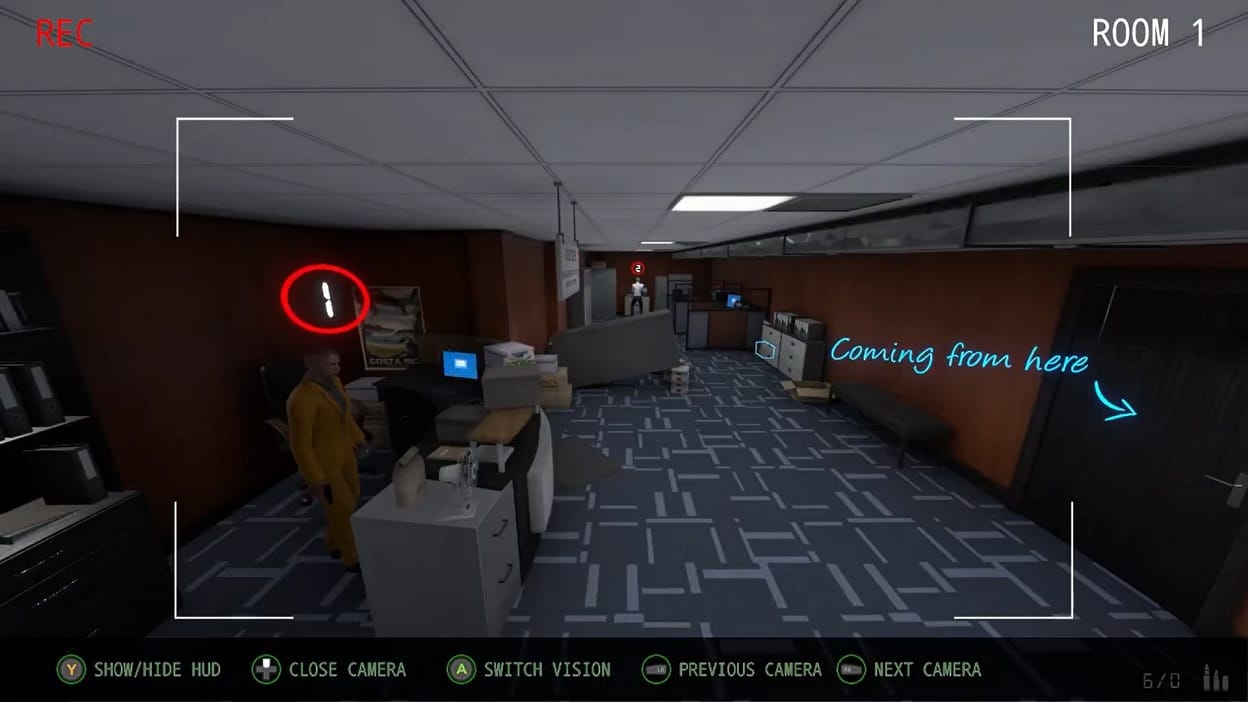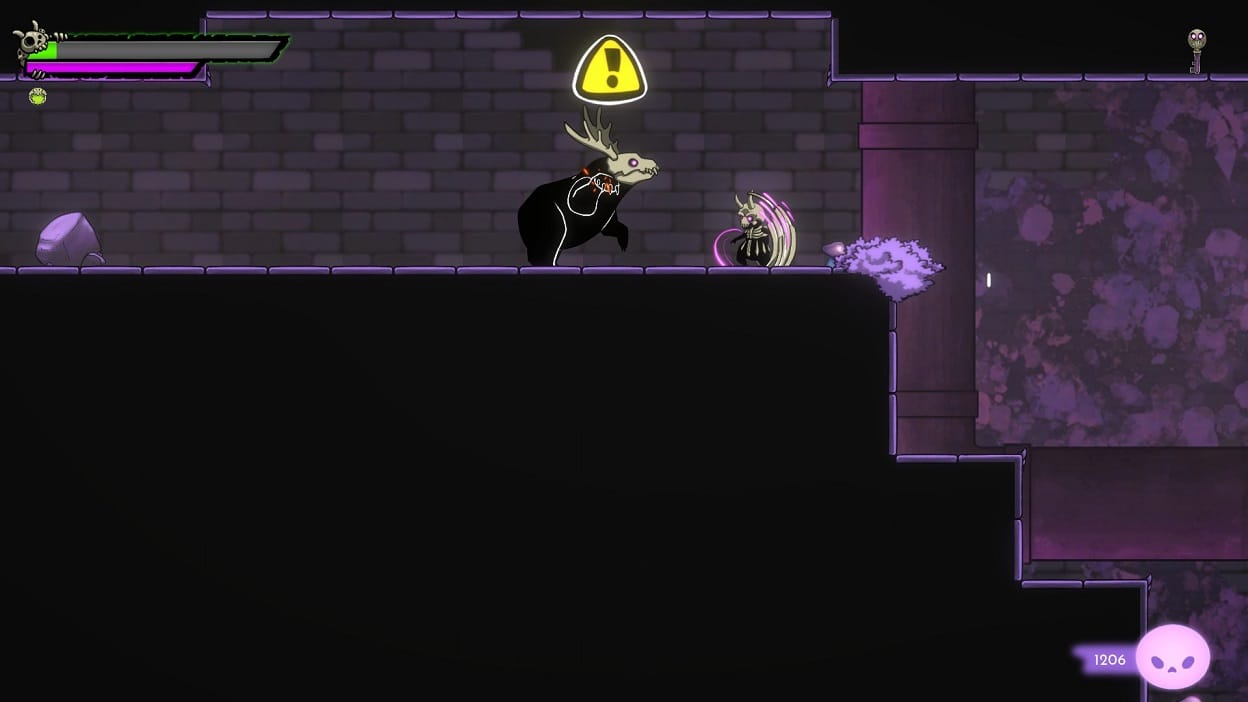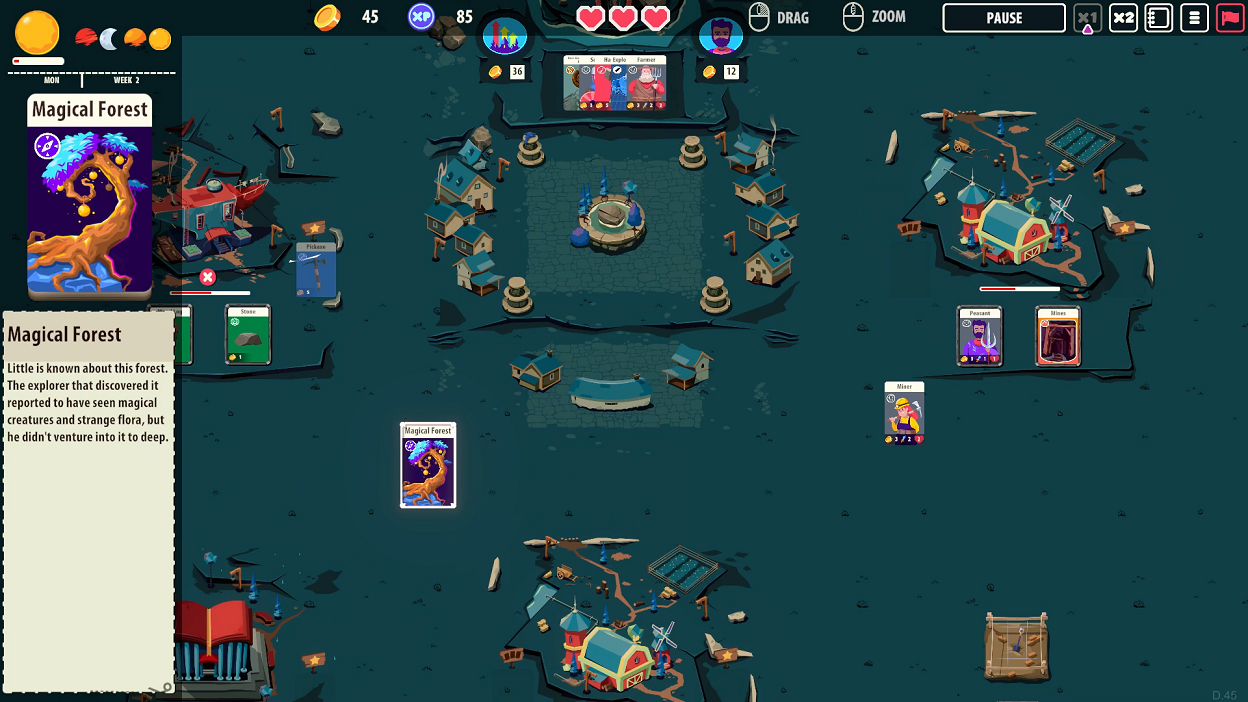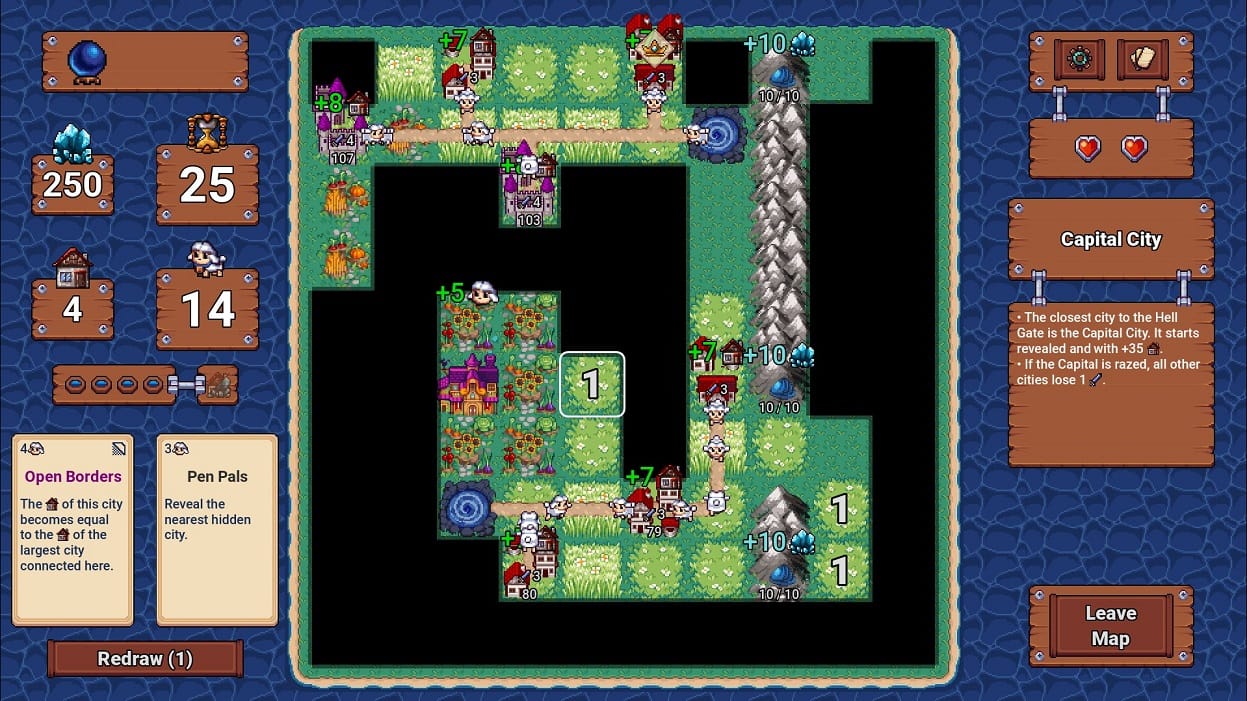Indie Monthly: March 2025
Minimalistic strategy games have caught our attention this month

There are a few interesting trends bubbling up in the trenches. One that I'm particularly fond of is the minimalistic strategy game. These are no-frills titles with simple yet emergent mechanics, coupling simple graphics and interfaces with deceptively deep board game-like rulesets. For a developer who wants to work in strategy but doesn't want to go head-to-head with the likes of 2K, Sega, or Paradox, it's a great middle ground. It helps that the games can be a blast to play.
Last month, we looked at Dawnfolk, a great early entry into this style. We have two more entries this month, with even more to come. But we'll begin by looking at a game trying to bring some innovation to the FPS genre.
As always, you can check out the Find the Fabulist YouTube channel to see footage of the games in action.

Check & Clean
Check & Clean is a tactics-focused FPS with some roguelike elements. The objective is to clear a building of hostiles using careful planning to compensate for limited resources.
Each mission begins with the player trapped in a safe room somewhere in a building full of armed men. Using explosive charges, the player moves from room to room, neutralizing every opponent until none remain. The player has two tools to aid in this task: Free use of bullet time and access to a camera in each room that can be used to check on enemy positioning and firing order.
Unlike in most first-person shooters, the protagonist is no tank. He will go down in a realistic number of shots, and the close quarters mean that enemies are unlikely to miss. The only way to safely clear a room is by taking out all opponents before they have a chance to fire. For most weapons, that only allows for maybe three shots before the enemy reacts, and with ammo being scarce, there's not a lot of room for error. Even if you're experienced with the genre, expect to screw up a few times when you're starting out.
Check & Clean is definitely made with the speedrunning crowd in mind. Everything that the player does is on a timer, and getting the best times requires some serious tactical modifications. It might mean checking the cameras while waiting for a charge to go off, refraining from using bullet time, blind firing from the hip, or leaving ammo uncollected.
One feature that bears mentioning is the music. Check & Clean boasts of having a dynamic soundtrack that is tied into the gameplay. Each level begins with a fairly standard, minimalistic techno soundtrack, but the music grows more complex with each room cleared. More importantly, the music is cued to the timing of the explosive charges, letting the player know that a door is about to open while checking the cameras - a useful feature when aiming for the best times.
The overall gameplay experience focuses far more on tactical thinking than conventional FPS mechanical skills. As such, it might not appeal to people who prefer twitchy action-oriented games. However, it's definitely worth a look if you're after a unique take on the genre.
Check & Clean is available for PC via Steam. A copy was provided for this review.

Morkull Ragast's Rage
Morkull Ragast's Rage is a brawler Metroidvania with a story that revels in breaking the fourth wall. Story aside, it is overall a very standard example of the subgenre without much to mix up the formula.
Morkull was once a perfectly ordinary death god before a glitch in his world made him aware of the programmers who created him. In an effort to keep him from causing too much damage, the developers arranged for his minions to turn against him, casting him into perdition in the deepest pits of his own realm. The only way out is for Morkull to appeal to the one person who can save him - the player now controlling his actions.
The core gameplay is built around a simple combo and parry system. Morkull gains new movement skills at key story moments and combat skills through an experience system. The combo system gives the player enough versatility that mastering the parry system isn't strictly necessary, though Morkull's fragility makes it a wise idea.
In terms of level design, Morkull focuses mainly on its combat, though there's still plenty of precision platforming in the mix. Most of the more technical sections are optional and focus on common platforming challenges, using skills like triangle jumping and movement cancellation. The overall map is relatively small compared to most Metroidvanias, indicating that exploration is less of an element.
A lot of the appeal of the game is tied up in the protagonist's irreverent personality. Morkull knows he's in a vide game and takes every opportunity to taunt and cajole the player. Most of the in-game lore is also composed by Morkull, who seeds little jokes and references throughout the text. This kind of self-aware humor isn't for everyone, but if it's up your alley then it does add a little more appeal to the experience.
Overall, Morkull Ragast's Rage is a decent game that just doesn't do enough to distinguish itself mechanically or aesthetically from its competition, and the humor isn't pervasive enough to tip the scales. Even so, dedicated Metroidvania fans will still probably find something to like here.
Morkull Ragast's Rage is available for PS5, Nintendo Switch and for PC via Steam. A copy was provided for this review.

Kingdom of Cards
Kingdom of Cards is a lightweight management and strategy game built around discovering item combinations. It's a simple concept that's quite a bit harder than it looks at first blush.
The objective of each run is to locate the key to a boss dungeon and defeat the enemies within. To this end, the player must develop a fighting force capable of taking the boss down - not an easy feat, and impossible with what's available early on. A typical playthrough begins with developing the kingdom's economic base by crafting superior tools for the workers, then using money and resources to smith or locate the increasingly powerful weapons needed for heavy combat.
Despite the theming, Kingdom of Cards is not a deckbuilder. The player doesn't gain cards passively but must earn them, whether by having peasants collect them, earning them via subquests, or finding them by exploring, looting, or raiding new territories. Such unlocks are sporadic, forcing the player to constantly seek out new means of finding cards.
Most cards do little on their own and need to be combined with others, and this leads to the heart of the game. With enough money, the player can construct buildings that can synthesize superior tools and weapons out of the resources they've found and then combine those with their subjects to create superior workers and soldiers. Basic workers only yield basic cards, and the starting soldiers can't do much, so figuring out those combinations is the only way to finish a run.
Kingdom of Cards is not meant to be finished over the course of a single run. The in-game log keeps track of all discovered combinations, including different formulae for certain pieces of gear that the player may not have found yet. The player also earns experience upon winning, losing or quitting a run which can be used to unlock new locations cards. These appear randomly in item harvests and can be essential for finding rare loot and weapons.
The gameplay loop is simple enough that even a beginner can get a handle on it quickly, but Kingdom of Cards can be deceptively difficult. Boss encounters are extremely difficult without just the right set of advanced units, and getting those units can take a while due to the randomness in the game. Kingdom of Cards also lacks some of the automation features found in similar strategy games, and while the kingdom never grows too large, it can be a bit daunting having to sift through dozens of cards looking for the right combination.
Overall, Kingdom of Cards is a decent beginner-friendly strategy game, but it falls just a bit short compared to some other minimalist titles.
Kingdom of Cards is available for PC via Steam. A copy was provided for this review.

Flocking Hell
Flocking Hell is a minimalistic strategy game designed for extremely quick sessions of play. It has the player rallying an army of sheep in a desperate effort to fend off an invasion of mutton-craving demons.
Each round has the player using a limited number of moves to build up defenses. Initially, the only thing the player can do is explore the map, collecting stray sheep and using Minesweeper-esque clues to locate settlements and other features. Subsequently, the player can use those gathered sheep to connect settlements to make them grow faster, mine for crystals that power a special weapon, and play cards with various effects.
Once the player runs out of turns, a wave of demons pours in through a hellgate and moves from settlement to settlement. At this point, there's nothing left for the player to do but watch the carnage and hope that the settlements are strong enough to withstand the assault and destroy all the attackers. If successful, the player advances to another round while collecting new cards and long-term upgrades.
The best strategies in Flocking Hell are straightforward enough that most players will pick up on them in very short order. Each map features a randomly chosen variant rule, and the upgrades the player selects will also affect the ideal strategy. The elements are mostly the same, however, and the approach doesn't vary too much.
Perhaps the most noteworthy thing about Flocking Hell is the brevity of its rounds. A player with some basic understanding of the elements can finish a round in less than five minutes, meaning that a full seven-round campaign can take as little as half an hour. This makes the game ill-suited for long sessions, but good for quick bursts of play during busy times.
Overall, Flocking Hell is a bit of an entry point for strategy. While there is a challenge mode for more seasoned enthusiasts, it's definitely targeting a more casual audience.
Flocking Hell is available for PC via Steam. A copy was provided for this review.
That wraps up our look at all the indie games that caught our attention in March. Be sure to come back each month for more of those sweet, sweet indie games you need to know about!
